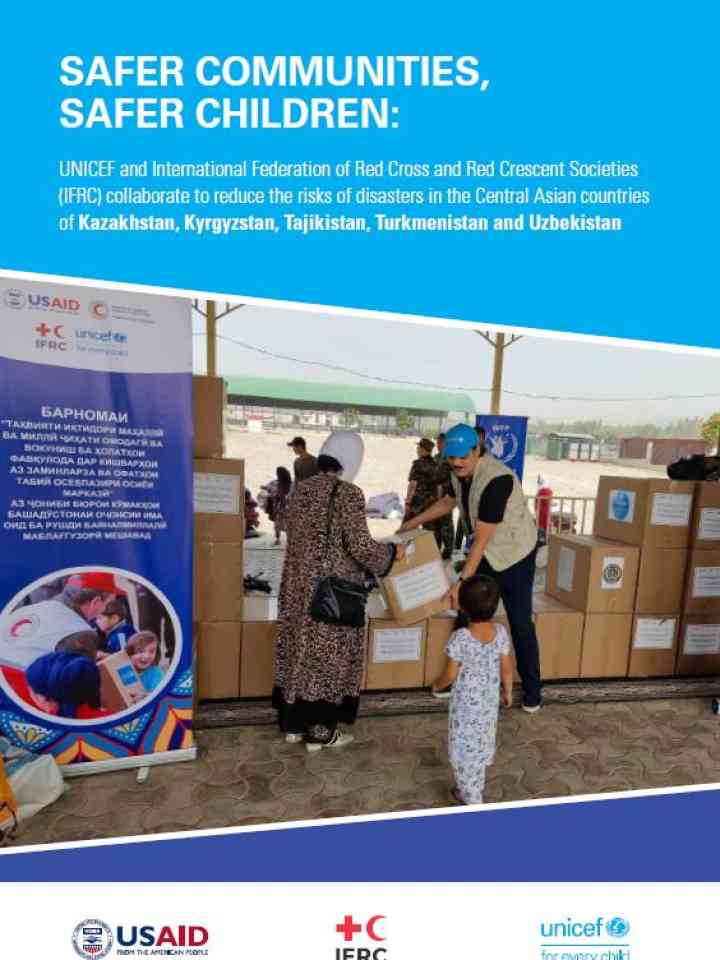Safer communities, safer children
The report reflects the outcomes of a 2.5-day Regional Lessons Learned Workshop in Almaty, Kazakhstan, held from 19-21 July 2023 on disaster risk reduction in relation to women and children. This workshop served as a crucial platform for strengthening the partnership and coordination between UNICEF and IFRC/Red Crescent teams at sub-regional and national levels. It facilitated the exchange of program achievements, challenges, and priorities for the next phase of the USAID/BHA-funded program. The workshop's insights will guide future collaboration, emphasizing common and sustainable approaches in community-driven disaster preparedness and risk reduction across Central Asia. Organized by UNICEF Regional Office for Europe and Central Asia and IFRC Country Cluster Delegation for Central Asia in collaboration with the Center for Emergency Situations and Disaster Risk Reduction, the workshop engaged specialists and management from UNICEF, IFRC, and relevant national societies in the region.
In Central Asia, UNICEF and the International Federation of Red Cross and Red Crescent Societies (IFRC) have joined forces to strengthen disaster preparedness and disaster/climate risk reduction. This partnership focuses on ensuring operational readiness and providing swift responses to emergency situations, with a particular emphasis on supporting affected communities and safeguarding the well-being of children. The collaboration leverages the unique strengths of Red Crescent Societies (RCS) as primary responders at the local level, complemented by the global mandates of IFRC and UNICEF's emergency response systems. This includes UNICEF's Core Commitments for Children in emergencies and engagement with local governments and ministries. Since 2018, with financial support from the United States Agency for International Development (USAID), the initiative aims to enhance disaster and climate resilience for children, vulnerable households, and communities in high-risk areas across all five Central Asian countries. The multifaceted approach encompasses community-based disaster preparedness and response, child and community-centered disaster risk reduction, climate change adaptation, youth empowerment, and shock-responsive social protection. Additionally, efforts are directed towards building institutional emergency response capacity and establishing efficient Emergency Operations Centers.
Explore further
